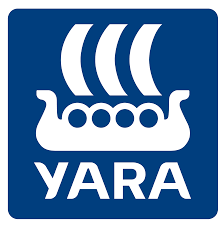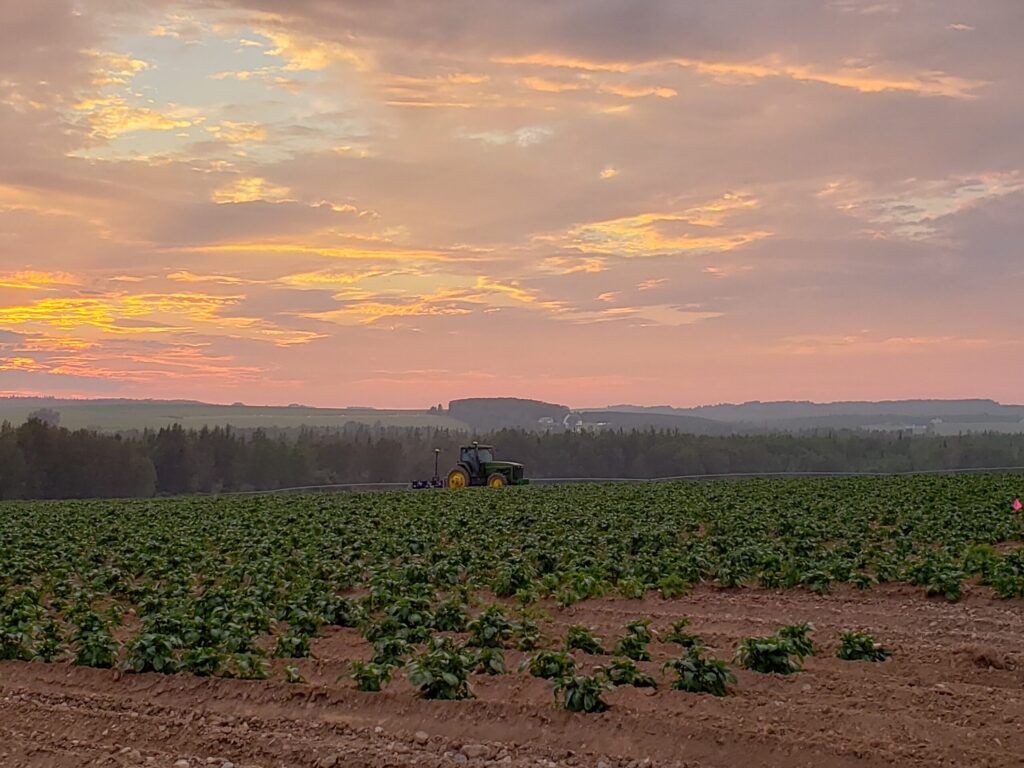
2024 Impact Awards: Meet the industry leaders making impactful contributions
From the classroom to the field, the 2024 Spudman Impact Award winners are making significant contributions to the potato industry.
Winners were nominated by peers and selected by a panel of judges from the industry.
Congratulations to the winners!
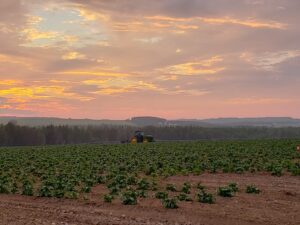
Andrew Jensen
Manager, Northwest Potato Research Consortium
With a life-long enthusiasm for entomology, Andrew Jensen became exposed to the potato industry at the age of 20, when his quest for a summer job connected him to his mentor, Gary Reed, who has become a major influence in Jensen’s career.
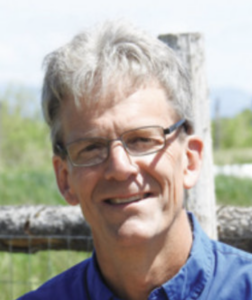
As a student, Jensen worked with Reed on potato-aphid-virus research, which led to Reed becoming his undergraduate and graduate advisor.
“From him, I learned about doing science rigorously. He also taught me a lot about institutions and people and how to navigate a career in research and industry outreach,” Jensen said.
From 1999-2012, Jensen worked for the Washington State Potato Commission, implementing ideas generated from its advisory boards.
Jensen is proud of his work he accomplished at the Washington State Potato Commission, as it ultimately led to “the leap of forming the Northwest Potato Research Consortium” that he said was a cooperative research effort funded by the state potato commissions in Washington, Idaho and Oregon.
The best advice Jensen has received is to double- and triple-check the work, and he most enjoys the diversity of scientific expertise and techniques involved in his work. His favorite potato variety is Alturas, because he has “seen it support an incredible diversity of insects, including herbivores, and still produce a good crop.”
Bryan Wada
CEO, Wada Farms
Family is a defining theme in Bryan Wada’s career.
Wada, CEO of Wada Farms in Pingree, Idaho, is a third-generation potato farmer. His potato industry path began when his grandfather, Frank, relocated to Idaho in 1942, and Bryan credits his father, Albert, as his biggest influence.

Bryan’s father, Albert, took over the family farm in 1976 and helped guide the business’ growth into an operation spanning nearly 30,000 acres.
“I have had the chance to meet a lot of people in agriculture and business in general, and I have yet to meet
anyone with the same level of passion, commitment, and attention to detail that my father has,” Wada said. “He and my mother both have set a very high standard that I hope to get close to one day.”
After graduating with a business degree from Pepperdine University in 1996, Bryan joined the family business, beginning his career in the fresh packing operation. The best thing about his job, he said, is the people he works with.
“Every day, I learn something new from them. Every day I am so very appreciative of their dedication, skill, professionalism, and integrity,” he said. “It is great being part of a great team and makes challenges more manageable and successes more rewarding.”
That said, Wada ranks his own family — wife Julie and children Elizabeth, Andrew and Jack — as his proudest achievement.
James Ehrlich
Executive director, Colorado Potato Administration Committee
Beer and basketball led James Ehrlich to the potato industry.
Ehrlich, executive director of the Colorado Potato Administrative Committee (CPAC), was familiar with potato growers and was interested in the industry when he was approached by the late Tom Ford, then chair of the Colorado Potato Committee. That’s when Ehrlich changed his career focus to spuds.
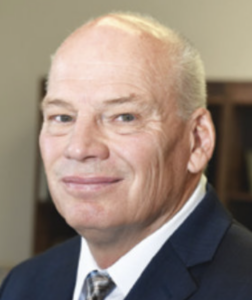
CPAC, founded in 1941, supports San Luis Valley growers and shippers with quality standards, sustainability best practices, research and marketing. The organization has helped spur expansion into new spud varieties while ensuring that more than two billion pounds of Colorado potatoes produced each year are of the highest possible quality.
Ehrlich is proud of the teamwork within the state’s potato industry and
its synergy with national organizations, including the National Potato Council and Potatoes USA — and teamwork is a concept Ehrlich puts a lot of stock in. He credits his high school basketball coach, Larry Hicks, as the most influential person in his life.
“He made me strive to reach my potential more than anyone,” Ehrlich said. “My true loves have always been my family, farming and basketball.”
Ehrlich advises growers to pass their potato passion onto future generations by engagement that reaches beyond the farm into industry organizations. And he says that the best thing about that industry is its people.
“Aggies are the best people on the planet, and potato growers and associated industry folks are at the top of the list,” Ehrlich said.
JD Wasir
Senior vice president, KoolJet
JD Wasir loves a challenge, and his profession affords him the opportunity to encounter them on a regular basis.
“Every system brings a new challenge involving dancing with precise temperatures, critical humidity factors and high energy efficiency,” he said.

Wasir realized that there was a need for a compact, packaged refrigeration system that could eliminate expensive installation costs often associated with conventional split type of refrigeration system designs, which required site installation.
So, Wasir designed and built a packaged refrigeration solution, 100% factory-tested prior to shipping.
“The refrigerant charged and calibrated system can be mounted on the exterior wall or door of the cold room. Once electrically hooked, the system is ready to operate and cool the produce,” he said.
Wasir is proud that every refrigeration system he designs helps keep produce crisp and delicious — “from farm to table.” Additionally, he takes pride in providing solutions that meet agricultural demands and contribute to sustainable and efficient food supply chains.
He draws inspiration from the pioneers in the refrigeration engineering industry such as Willis Carter, who laid the foundation for temperature control technology.
“I am blessed with inheriting the legacy of expertise and wisdom passed down to me. (I’m) trying my best to follow the tradition,” he said.
John Forsythe
Innovation manager at 1,4GROUP Inc.
John Forsythe’s potato career began when he was 10 years old and working alongside his dad, who had just started crop storage company Industrial Ventilation Inc.
“My biggest qualification was being small enough to squeeze into tight places in a storage,” he said.
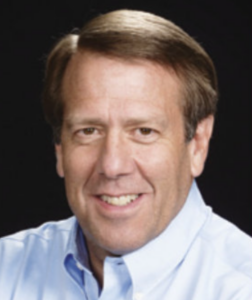
Those early years left a lasting impression and sparked a lifelong interest.
“Growing up during the rapid expansion of potatoes, not just in Idaho but across the country, showed me the value potatoes have in our everyday life,” Forsythe said. “This was a time when everything was new and a bit unknown. Growers were not afraid to try new, innovative solutions to growing, storing, packing and marketing.”
That excitement helped lead Forsythe down a path to his current position as innovation manager for 1,4GROUP Inc., where he’s still focusing on innovating and solving problems.
“It is wonderful to talk with a potato grower, no matter where they are, and share the passion for excellence; so many ideas have come from a simple discussion in a storage,” he said. “I am so lucky to have a workshop and talented engineers to explore, design and build equipment.”
Forsythe points to his father, who he calls a “master at innovation,” as one of his biggest inspirations and influences. Working together to find an alternative to chlorpropham (CIPC) for sprout control, they helped bring 1,4-Dimethylnaphthalene (1,4-DMN), a naturally occurring compound, to U.S. growers.
Kyle Atcheson
Co-owner, Atcheson Farms
Potato farming is in Kyle Atcheson’s blood.
Atcheson, co-owner of Atcheson Farms in Woodland, Maine, is a third-generation potato farmer. Before farming full time, Atcheson worked as a John Deere Master Technician for Theriault Equipment, servicing equipment for 15-plus years.
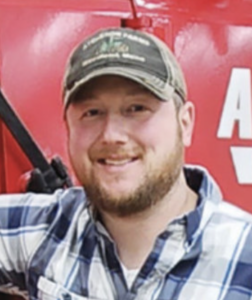
Atcheson left that position when increased demand began putting production pressure on the family farm to pursue his dream of farming with his father, Thomas Atcheson.
“I learned everything about farming from my father and grandfather, Kenneth Atcheson, who started the farm in 1957,” Kyle Atcheson said. “My dad started his full-time farming career right out of high school in 1979 and has shown every day since what hard work, blood, sweat and tears will accomplish while still being the best family man example and my hero.”
In addition to working with his family, growing several types of russet potatoes, Kyle is also making sure the next generation nourishes its potato- producing roots. He shares his love of farming with wife Jaime and daughter Kayleigh, featured on the farm’s Facebook page perched in her father’s lap in a tractor cab and described as “pretty much the best tractor driver we got!”
One of Kyle’s proudest career moments came when he was recognized as one of three Aroostook Achievers by Momentum Aroostook in northern Maine. The award honored agricultural figures for their leadership, conservation and contributions to the farming community.
Kyle cherished the award in part because it helped solidify the farming legacy begun by his grandfather.
“My grandfather would have been so proud, as he was able to see me plant my first crop back in 2014, and to see the farm growing would have been his dream,” Kyle said. “Now, to be recognized by Spudman has made another proudest moment in my career.”
Nora Olsen
Professor and Potato Specialist, University of Idaho
When she first got involved in the potato industry attending Washington State University, Nora Olsen fell in love — with both the crop and the industry as a whole.
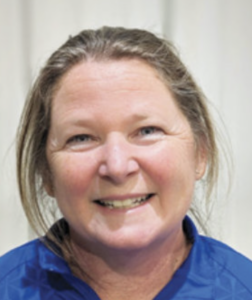
“Once you start working in potatoes you are hooked. (They are) fascinating from a biological and agronomic perspective, and what an incredible food crop to feed the world,” Olsen said.
Olsen channels that passion in her role as professor and potato specialist at University of Idaho, where she just celebrated 25 years. Olsen’s job continues to challenge her, as each day is different and brings new opportunities to solve grower problems and keep the potato industry strong.
“This job is creative, with hands-on applied research and direct interaction with the industry,” she said.
Olsen appreciates working alongside and learning from others in the potato industry. The thing she most enjoys in her role is recognizing problems facing the industry, developing science-based solutions and relaying that information back to growers.
Olsen points to a number of mentors who have helped her in her career. Notable names include Bob Thornton (Washington State University), Gale Kleinkopf (University of Idaho) and Phil Nolte (University of Idaho.)
For others in the industry, Olsen offers several snippets of advice: enjoy what you’re doing, contribute, challenge yourself, learn every day and — most especially — be grateful.
Russell Groves
Department chair, University of Wisconsin-Madison
Throughout his academic career, Russell Groves has maintained a focus on personal relationships.
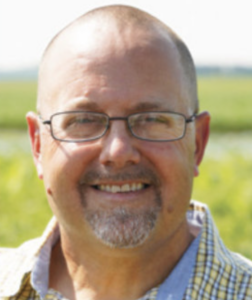
Groves, a professor and department chair at the University of Wisconsin — Madison, began researching potato virus patterns at Cornell University in Stewart Gray’s laboratory. A stint studying bacteria in grapes, almonds and citrus in California followed before Groves returned to potatoes, accepting a vegetable entomology position in Wisconsin.
There, he’s found the best thing about his award-winning research is the people, including department colleagues and undergraduate and graduate students.
“I’m proud of the personal relationships I have developed with so many people over my career to date — professional colleagues across the U.S. and internationally, my peers at the UW- Madison, the UW-Madison vegetable team, and the many students with whom I have had the pleasure of interacting,” Groves said.
That personal touch is also evident in Groves’ choosing of his wife, Carol, also a scientist, as his atop the list of his biggest influences.
“(She) has influenced my career in so many positive ways,” Groves said. “My personal interactions with others have also been shaped by my parents.”
That internal support system has led to industry recognition including the 2017 Wisconsin Seed Potato Industry Leadership Award and the 2016 University of Arkansas Dale Bumpers College of Agricultural and Life Sciences Distinguished Alumnus Award.
Given his emphasis on personal relationships, it’s no surprise that Groves cited the Golden Rule as his best advice: “Do unto others as you would have them do unto you.”
Tim Waters
Professor and regional specialist, Washington State University
As a professor and regional specialist at Washington State University, Tim Waters is no stranger to the potato industry. In his role, he gets “to use science to try to solve real world problems.”
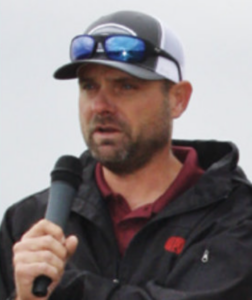
At WSU, Waters is proudest of his work with insect integrated pest management in potatoes.
“We have been able to work with the potato industry to learn how to manage insect pests with reduced risk insecticides and significantly reduce the number
of insecticide applications required to produce a quality potato crop,” he said.
Mentors including the late Dallas Batchelor and Doug Walsh have helped steer Waters’ career.
Batchelor frequently checked in on Waters early in his career, providing pertinent feedback “without a filter,” Waters said.
Walsh, who understood the value of public speaking, advised Waters to never turn down an invitation to make a presentation.
Waters’ favorite potato variety is Clearwater Russet because its long growing season in the Columbia Basin provides ample opportunity to conduct research projects, “since we cannot predict how early or late some of the insect pests we work with will arrive,” he said. “It also produces very consistently shaped potatoes even under environmentally stressful conditions that we sometimes purposely cause in our test plots.
“Even researchers want to have nice looking potatoes at the end of the season.”
Bryan Bender
Emerging Leader
The Emerging Leader award recognizes an up-and-coming industry professional poised to reach new career heights.
Bryan Bender, 38, is a fourth- generation grower at Bender Potatoes, which grows 140 acres of round white potatoes in Chambersburg, Pennsylvania on 500 acres of farmland.
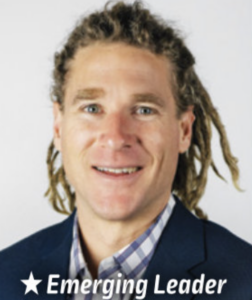
Bender Potatoes grow 70 acres of Atlantic and Snowden for out of the field chipping and 70 acres of Norwis, Reba and Waneta for table stock, while 30 acres of Waneta are put into storage to be packed and sold on demand. Bryan oversees sales, shipping and procuring for repacking to provide local customers with year-round supply.
Bender Potatoes sells to a few local grocery stores and restaurants, but most of the table stock goes to food service distributors. Bender is involved in the entire operation of the small family farm, but his focus is growing, buying and selling potatoes.
Bender went to Coastal Carolina University hoping to play basketball and to major in math. After becoming a Christian through a campus ministry called Campus Outreach, he went to work for the organization in 2007.
In 2012, he moved back to the family farm. He serves on the boards of the Pennsylvania Co-operative of Potato Growers and the Pennsylvania State Potato research.